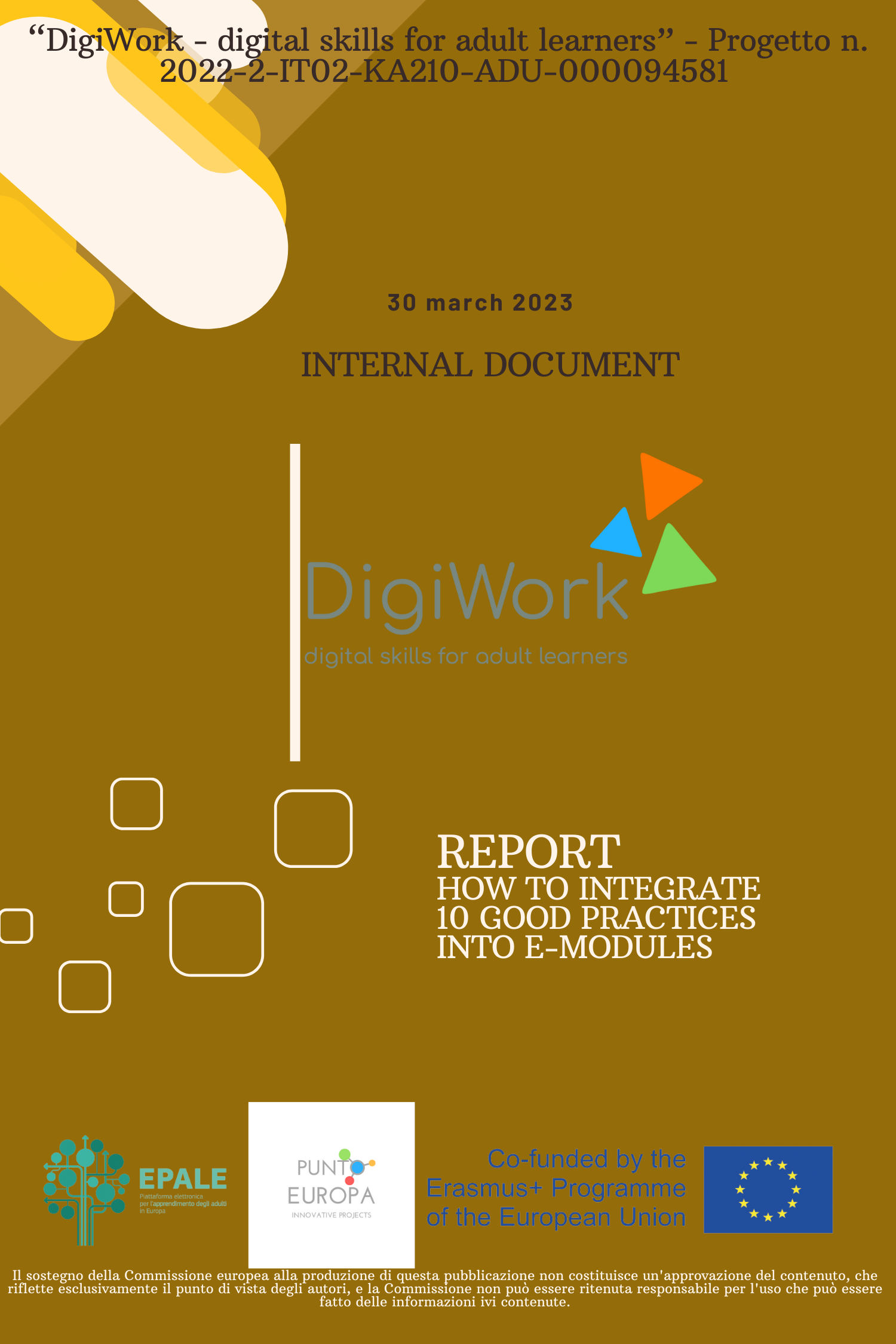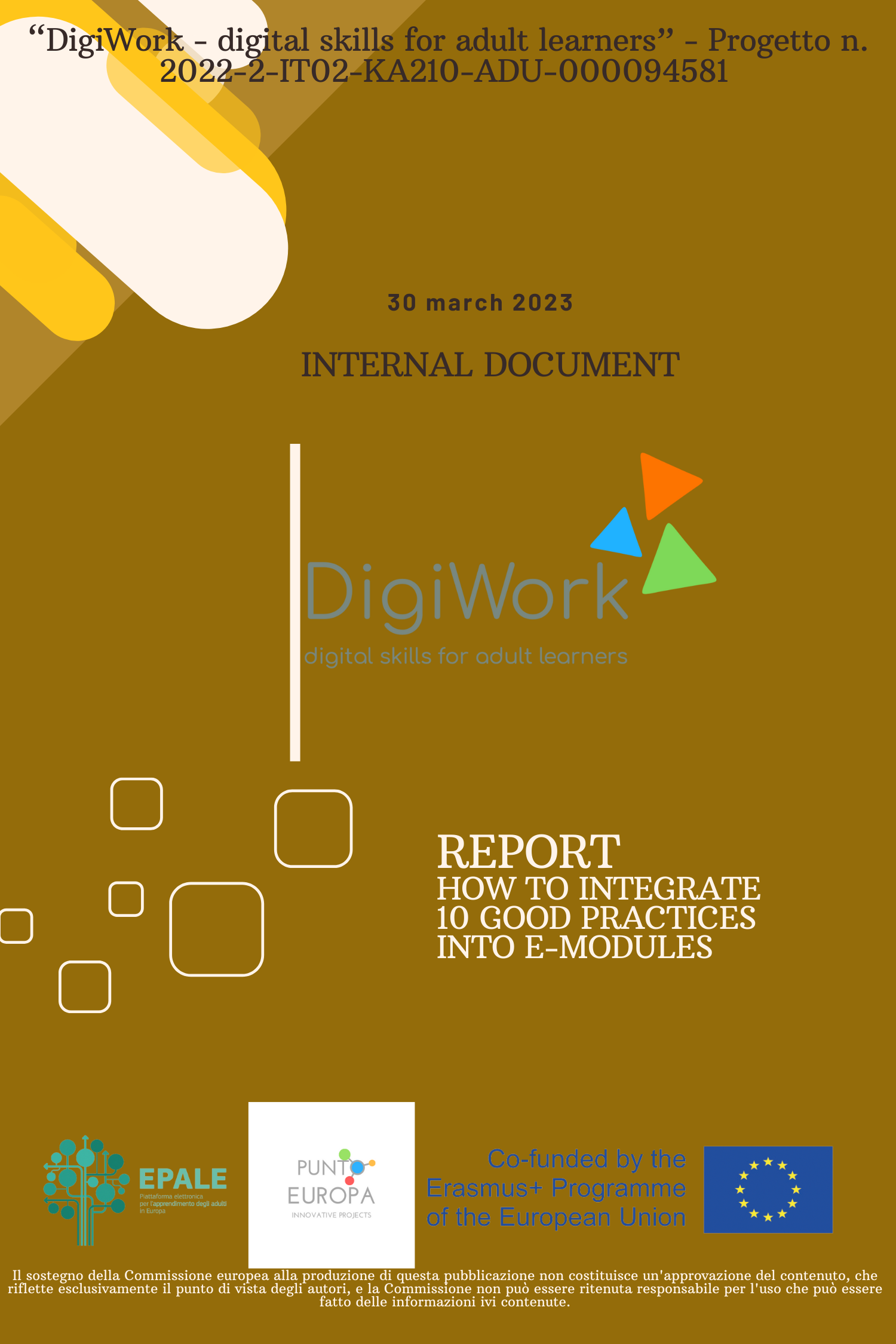10 Best Practices

The DigiWork partnership identified the need to integrate 10 specific good practices into each of the e-learning modules to enhance the effectiveness of the training and ensure that learners can apply the acquired skills in real-life scenarios.
- Introduction to Using the PC:
- Good Practice: Active learning through guided exercises, helping learners build confidence in basic computer use.
- Digital Security:
- Good Practice: Digital risk simulation scenarios, preparing learners to recognize and manage online threats.
- Digital Messaging:
- Good Practice: Realistic case studies that illustrate effective communication via email and messaging platforms.
- Basic Data Analysis:
- Good Practice: Practical exercises using real datasets to develop data interpretation skills.
- Image Editing with Canva:
- Good Practice: Step-by-step creative projects that help learners build a digital portfolio using Canva.
- Social Media Management:
- Good Practice: Content creation and planning exercises that emphasize consistency and quality in social media posts.
- Video Editing:
- Good Practice: Video projects based on real-life scenarios, enhancing learners' video production skills.
- Working with Large Language Models (LLMs):
- Good Practice: Interaction exercises with AI models for tasks like text generation and translation.
- Video Conferences:
- Good Practice: Simulations of online meetings to improve participants' virtual meeting management skills.
- Digital Literacy for Everyday Life:
- Good Practice: Practical solutions to everyday problems using technology, boosting learners' confidence in digital tools.

This report details how these good practices were integrated into each module, contributing to the overall success of the training program and enhancing the learners' ability to apply digital skills in both professional and personal contexts.